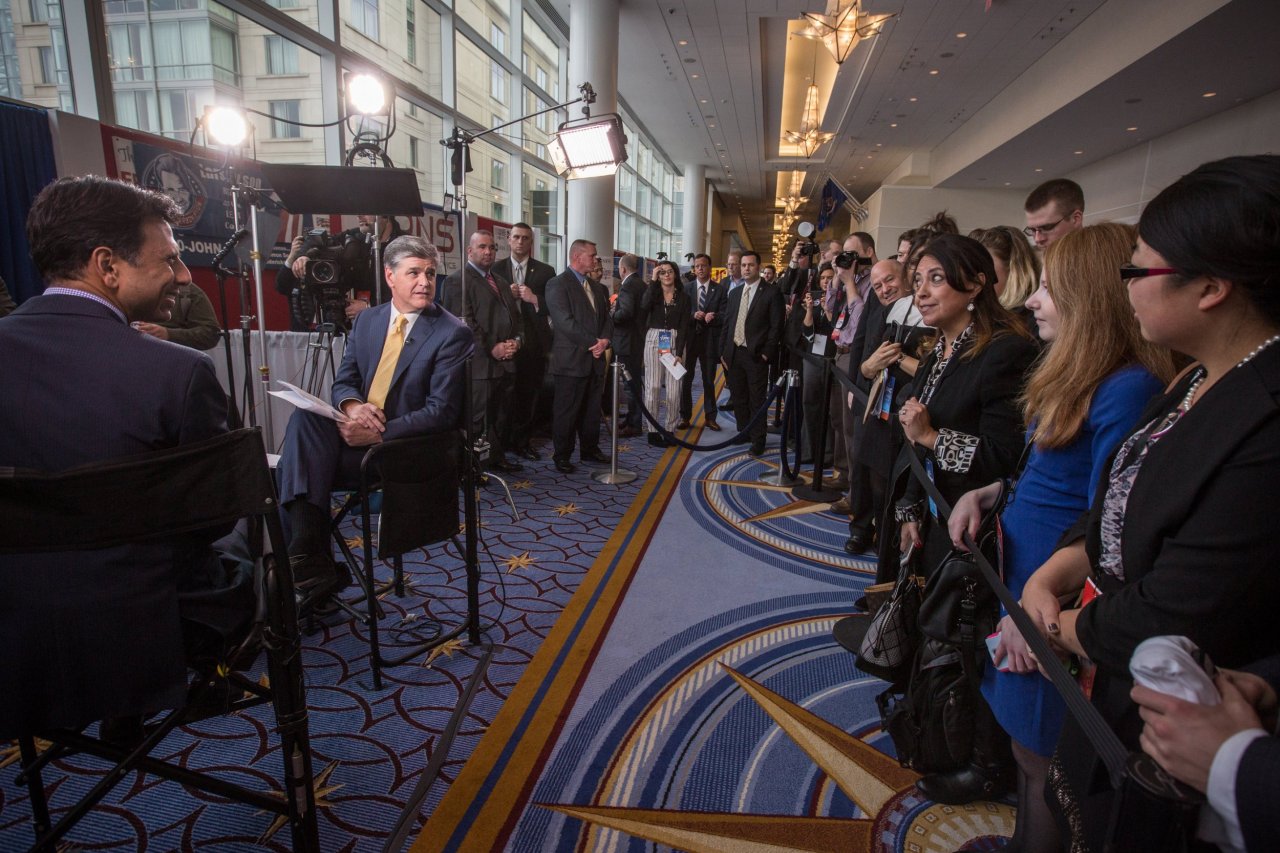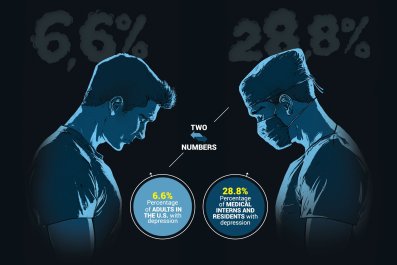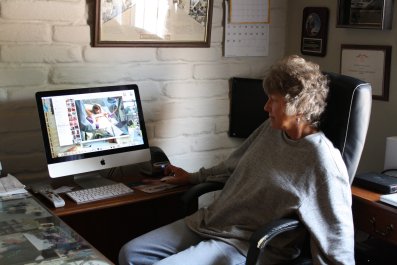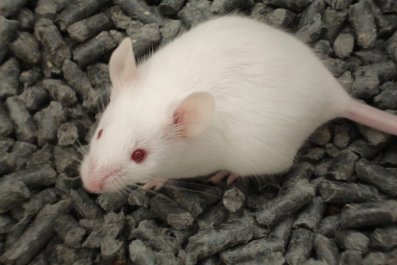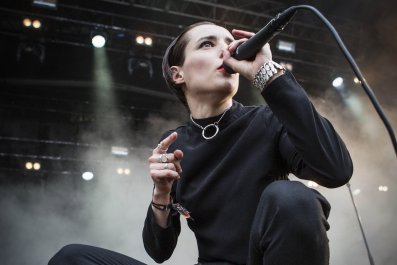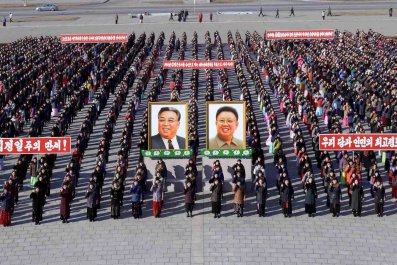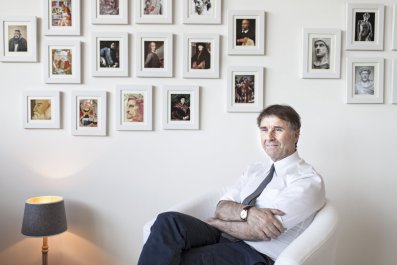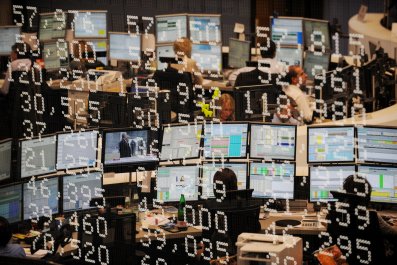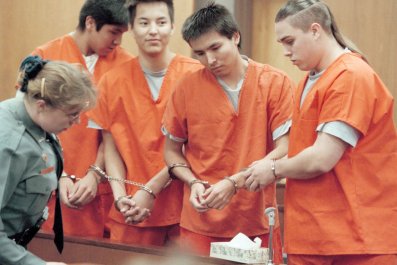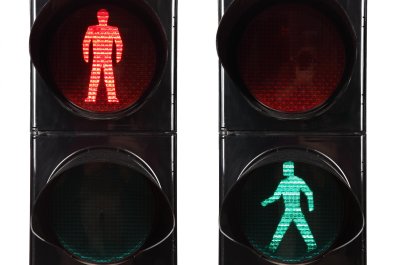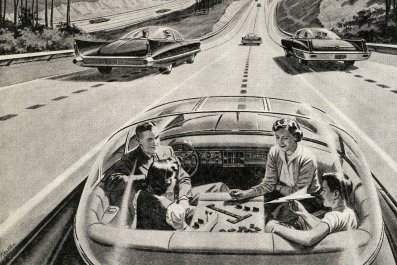Sean Hannity warns me repeatedly that his lunch order will be weird. Graying but still boyish with a toothy grin, the Fox News host sits on the second floor of Del Frisco's steak house, across the street from his office in midtown Manhattan. The "weird" lunch he orders consists of scrambled eggs with onions and a dash of bacon. Usually, Hannity explains, he would order a thick steak.
"I'm just on a really strict regimen right now, because I'm working out so much," he says. The conversation moves to his workout routine, specifically his passion for mixed martial arts. "I hit the heavy bag. I hit the mitts. I do a lot of core."
Hannity turns to a waitress as she fills up his glass of water. "We're talking about my MMA workout." She nods. "He's interviewing me," he adds. "He's part of the liberal media, so be careful."
"How's that going for you?" the waitress asks him.
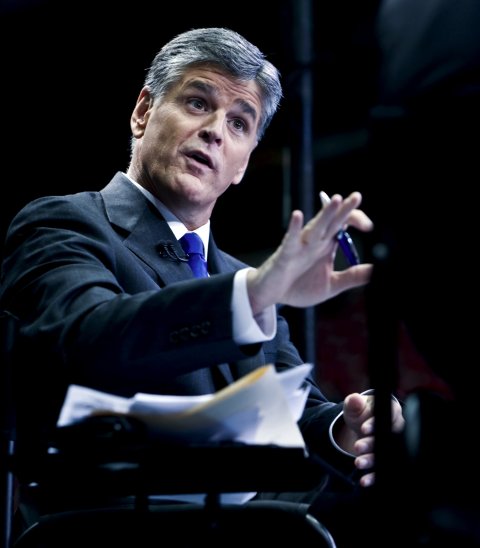
He doesn't have to answer because it's obviously been going really well for Hannity since 1996, when he was handpicked by Fox News Chairman Roger Ailes as part of the original team that redefined cable news. In an industry once dominated by the ostensibly nonpartisan CNN, Fox torpedoed the unspoken standard that news should be impartial, tapping into an audience thirsty for conservative commentary. Under Ailes's tutelage, Hannity became a sensation, delighting viewers any time he filleted his squishy co-host, Fox's house liberal Alan Colmes, before going solo in 2008.
Hannity stood out, even at Fox, as the GOP's man inside the network, unloading on Democrats while cultivating access to the Republican Party. Unlike Bill O'Reilly, who gleefully strays from party positions—he supports climate change action and opposes the death penalty, for example—Hannity is reliably loyal to the GOP. He's mastered the swagger of the right-wing shock jock, whether by comparing Black Lives Matter activists to the Ku Klux Klan or telling a female guest to "follow the bouncing ball" while he explains terrorism to her.
But in 2013, at the middle of Barack Obama's tenure and a time of peak rabble-rousing for conservative pundits, Hannity got bumped from 9 p.m. to 10 p.m. Megyn Kelly, a rising star at Fox News, took over his old slot, while O'Reilly retained his 8 p.m. throne. These days, although more than 2 million viewers tune in to The Kelly File —the kind of numbers Hannity used to get—half a million switch off when she's through, leaving Hannity with 1.5 million viewers.
In a crowded Republican primary season seemingly tailor-made for Hannity, so far it's been Kelly in the spotlight. She's earned monster ratings and critical praise from both liberals and conservatives for her stint as a presidential debate moderator this summer, especially for the way she held her own against the bizarre attacks of GOP front-runner Donald Trump. Finally, in January she debuted in Vanity Fair with a laudatory profile. "Don't Mess With Megyn Kelly," the cover blared, "Fox News's Brightest, Toughest Star."
Hannity pauses before addressing Kelly's takeover of his slot. "Best thing that ever happened to me," he says finally. Asked whether he feels he's being eclipsed, he simply replies, "She's a huge star." But where does that leave Hannity? Still a key name at Fox, no doubt, but no longer the king of cable.
You wouldn't know it from his crew, though. However loathed he is by liberals, his baby-faced bravado has made him an apparent favorite among Fox employees. After lunch, at a pretaped segment in Fox's Studio D, a makeup artist spends at least two minutes explaining how Hannity is the nicest man in show business.
"Yeah, Hannity's a hoot," says Lou, one of his cameramen. "One time he challenged me to do a hundred pushups." Lou turns to Hannity, who is wiring up his mic to film a taped segment, his blue jeans visible underneath his desk. "How many was it? A hundred?" The mere mention of this incident brings Hannity to the middle of the set, where he challenges the crewman to a brief rematch. They both drop to the floor and start pumping out pushups, Hannity clapping his hands in between reps, Travis Bickle-style.
During the George W. Bush years, Hannity staunchly defended the administration and Republicans in power. But ever since 2009, after Obama entered the White House and the Tea Party movement tapped into popular resentment toward the Republican establishment, Hannity has styled himself as a mad-as-hell right-wing dissident. "There's a Washington Post poll," he says at lunch. "I often cite it on my show: Sixty percent of Republicans feel betrayed by Washington Republicans. And I think for good reason." (After contacting Fox for a link to said poll, I find it's actually an in-house Fox News poll.)
Flashing his badge of independence, Hannity says he registers as a capital-C Conservative, not a Republican. Yet for all his populism, he doesn't ever use his influence to lay a glove on the GOP. Conservative political consultant Matt Mackowiak has noticed the host's lack of initiative. "He complains about leadership a lot. He parrots the conservative base, but he doesn't have a real issue he focuses on. You don't see him using his influence for a policy outcome."
Of course, that's not how Hannity sees it. "The country is going down the shitter," he says at lunch, his voice rising while his plate of eggs gets cold. "I want to be one of the spokes in the wheels, pushing the ideas that will help save the country." What follows is a monologue seemingly pieced together from bits of his radio and TV shows, evoking great men of American history and the dream of a better tomorrow. "Reagan said, Is it a third party we need? No, it's a revitalized second party with no pale pastels but bold differences."
Asked to place himself on a spectrum of conservatism, Hannity bristles. "I don't, I don't—you know, that's a narrative that the left advances." OK, but which of the Republican presidential candidates' positions does he disagree with? No dice. What could one of them do to lose the Hannity vote? "Nice trick," he says instead of answering the question.
A picture emerges of a conservative who wants to be loved rather than feared. Over the course of one lunch, he manages to say something positive about nearly every Republican contender. Florida Senator Marco Rubio "will be president someday." Senator Ted Cruz completely schooled the media during the raucous CNBC debate. Governors John Kasich, Bobby Jindal and Scott Walker have all done "an outstanding job." Jeb Bush, who has plummeted from double to single digits in the polls, is merely "underperforming." Rick Perry has "a great record" and was unfairly laughed out of politics for one silly debate flub.
And don't get him started on his good friend Donald Trump, whose brand of neckties he flashed during a taping of his show after our lunch.
In stark contrast, last year his fellow Fox personality Laura Ingraham waged a successful media campaign to oust then-House Majority Leader Eric Cantor from power. Also that year, O'Reilly made an unrelenting and public case for "Kate's Law," writing an open letter to then-House Speaker John Boehner and Senate Majority Leader Mitch McConnell pitching the draconian immigration bill.
That's the kind of blood sport Tea Partyers want, but Hannity won't play that game.
Still, what he lacks in radical cred he makes up for in marketability. Take his "Hannitization" live radio tours or his website's catalog of neckties the host has worn during interviews: "HanniTies."
There was also his dating website for right-wingers, the now-defunct Hannidate. "Many people got married," Hannity says confidently of the site. "I don't know the whole number, but a lot." The site was billed as "the place where people of like conservative minds can come together to meet. It's fun, interactive, safe and anonymous—until you decide to take it further." In fact, Hannity confides that sometimes, when he's traveling the country or bored during book signings, he will put "cute couples" on the spot and pressure the man into proposing to his girlfriend. "I have a success rate of about 90 percent."
But will he ever put that kind of pressure on a politician? Hannity denies he takes it easy on the powerful. "My role is not to tell my audience who to vote for. I give my audience access to the candidates they are considering and respect them enough to let them make their own decision."
Mackowiak puts it differently. "He wants to be able to get the guests he wants, when he wants them," he says. "He wants to have exclusives."
At one point during lunch, Hannity seems to confirm his priority is show business, not impact journalism. "I am a conservative, but I consider myself a talk show host. If you ask me, Am I a journalist? No. Advocacy journalist? You could say that, but I consider myself a talk show host."
As Kelly and Fox News win praise this election season for challenging candidates with tougher, more pointed questions, Fox is capitalizing on the Republican Party's fractured state, which leaves Hannity possibly damned by his proximity to the GOP. Asked what he would do if and when he parts ways with Fox, Hannity says, "Probably drive around in the car, talk to myself for three hours a day." When the question comes up again, he looks annoyed. "I'm 53. I'm young. I'm healthy. I'm not thinking about anything in the future."
As I watched him tape his closing monologue for that night's show, I realized Hannity was repeating, almost word for word, the answers he gave me during lunch. The "Washington Post" poll. The Reagan quote about bold colors. The call for new conservative solutions. Much like a politician, he's delivered these bromides so many times.
Back from commercial break, with a few seconds to go as the graphics of the show's bumper swirled on the TV monitors, Hannity squinted at me through all the lights and machinery and whispered, "What if I've got nothing to say?"



